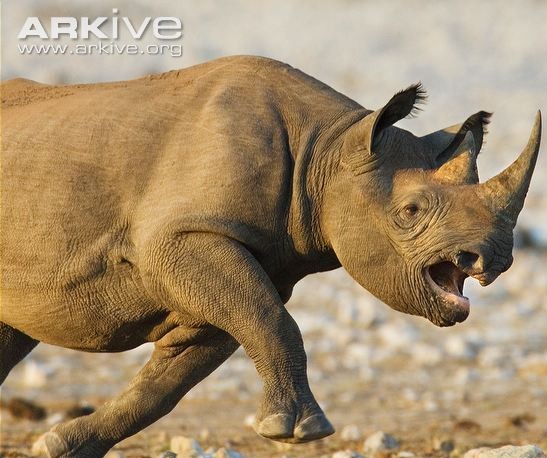TEXAS
 A federal judge sentenced an appraiser of Asian art to two years and a month in prison for being involved in an illegal wildlife smuggling conspiracy in which rhinoceros horns and elephant ivory worth nearly $1 million were smuggled from the United States to China, according to authorities.
A federal judge sentenced an appraiser of Asian art to two years and a month in prison for being involved in an illegal wildlife smuggling conspiracy in which rhinoceros horns and elephant ivory worth nearly $1 million were smuggled from the United States to China, according to authorities.
Ning Qiu, a resident of Frisco, Texas, plead guilty in federal court last year to one count of conspiracy to smuggle and violate the Lacey Act.
Qiu, 43, was identified as part of “Operation Crash” – a nationwide effort led by the U.S. Fish and Wildlife Service and the Justice Department to investigate and prosecute those involved in the black market trade of rhinoceros horns and other protected species, officials said.
“Qiu was a key player in a web of wildlife traffickers who used his role as an antique dealer to illicitly smuggle wildlife items, including rhino horn and elephant ivory, from the United States to China,” said Assistant Attorney General John C. Cruden. “We will continue to investigate and prosecute those who are involved in this dark trade, which fuels poaching and is driving some of the world’s most iconic species to the brink of extinction.”
Rhinos Protected by International Treaty
 The rhinoceros is an herbivorous species of prehistoric origin and one of the largest remaining mega-fauna on earth, officials said.
The rhinoceros is an herbivorous species of prehistoric origin and one of the largest remaining mega-fauna on earth, officials said.
They have no known predators other than humans. All species of rhinoceros are protected under U.S. and international law, officials said.
Since 1976, authorities maintain that the trade in rhinoceros horn has been regulated under the Convention on International Trade in Endangered Species of Wild Fauna and Flora, a treaty signed by more than 170 countries around the world to protect fish, wildlife and plants that are or may become imperiled due to the demands of international markets.
Zhifei Li is a Major Player in Selling Rhinoceros Horns Worth Millions
According to court documents, Qiu admitted to acting as one of the three antique dealers in the United States paid by Zhifei Li, the admitted “boss” of the conspiracy, to help obtain wildlife items and smuggle them to Li via Hong Kong.
Li was sentenced on May 27, 2014, in federal district court in Newark, New Jersey, to serve five years and 10 months in prison for his leadership role in the smuggling conspiracy.
Authorities allege Li arranged financing, negotiated the price and paid for rhino horn and elephant ivory. He also gave instructions on how to smuggle the items out of the United States and obtained the assistance of additional collaborators in Hong Kong to receive the smuggled goods and then smuggle them to him in mainland China.
As part of his plea, Li admitted that he sold raw rhinoceros horns worth approximately $3 million – approximately $17,500 per pound – to factories in China where the horns are carved into fake antiques known as zuo jiu (which means “to make it as old” in Mandarin).
Between 2009 and 2013, Qiu purchased and smuggled to Hong Kong at least five raw rhinoceros horns weighing at least 20 pounds. Qiu smuggled the raw rhino horns by first wrapping them in duct tape, hiding them in porcelain vases and falsely describing them on customs and shipping documents, including by labeling them as porcelain vases or handicrafts.
China’s Tradition of Drinking from Rhino Horns
In China, there is a centuries-old tradition of drinking from intricately carved “libation cups” made from rhinoceros horn.
Owning or drinking from such a cup is believed by some to bring good health, and true antiques are highly prized by collectors.
The escalating value of such items has resulted in an increased demand for rhinoceros horn that has helped fuel a thriving black market, including recently carved fake antiques. The leftover pieces from the carving process were sold for alleged “medicinal” purposes even though rhino horn is made of compressed keratin, the same material in human hair and nails and has no proven medical value.

